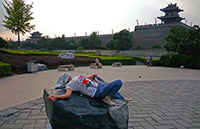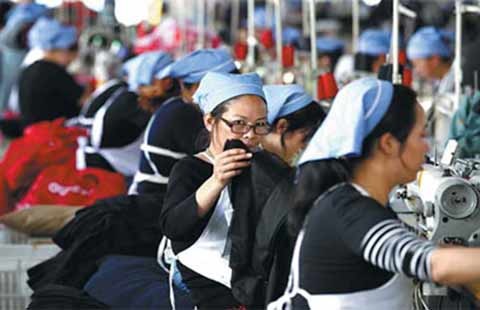China's craze for online anti-corruption
(Xinhua) Updated: 2012-12-07 09:05Experts said that China's fight with corruption, with enthusiastic participation of netizens, has entered a new stage and the undertaking needs legal and institutional guarantee.
The outcry of Internet users demanding justice from the government has also forced China's disciplinary authorities to combat corruption in a more proactive way.
Authorities in Guangdong Province announced this week that they will launch a pilot regulation that will require local officials to disclose their assets, as well as those of their relatives, to a certain amount of people.
A spokesman with the Guangzhou Municipal Commission for Discipline Inspection, Mei Heqing, said authorities are working on a corruption prevention information system that will integrate data from various government departments to find clues about corrupt officials.
DOUBLE-EDGED SWORD
Though proving efficient and effective in fighting corruption, "online anti-corruption" however has its limits and sometimes can do harm to innocent people, experts warned.
After the case of Cai, an Internet posting revealed that Li Yunqing, a retired senior engineer in Guangzhou, owned 24 houses and was suspected of corruption.
An investigation however showed that Li, neither a CPC member nor a Party official, owned the houses with her son through hard work or investment.
The incident left Li angry, as her personal information had been leaked to the Internet.
Zhang Youde, head of the Social Management School, Shanghai University of Political Science and Law, said Internet muckrakers should take legal responsibility if they cross the line and violate the privacy of others.
Zhang said legislation should be put in place to rein in the negative effects brought to society by "online anti-corruption".
Related readings:
Fight corruption with transparency
Official arrested for alleged corruption
Guangdong launches anti-corruption pilot project
- Li urges top advisers to rely on broad vision
- China to strengthen regulation on real estate agencies
- Beijing garrison gets a new commander
- Diplomats vow progress on code of conduct
- Volunteers help fellow expats stay within law
- Heart disease rising; lifestyle shift blamed
- NDRC issues 3-year plan for growth in Northeast
- China denounces Japanese cabinet members' visit to Yasukuni Shrine
- China launches first-ever quantum communication satellite
- Shanghai's two airports add security










